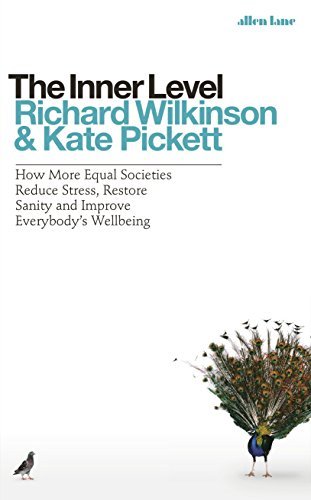What do you think?
Rate this book


Why is the incidence of mental illness in the UK twice that in Germany? Why are Americans three times more likely than the Dutch to develop gambling problems? Why is child well-being so much worse in New Zealand than Japan? As this groundbreaking study demonstrates, the answer to all these hinges on inequality.
In The Spirit Level Richard Wilkinson and Kate Pickett put inequality at the centre of public debate
by showing conclusively that less-equal societies fare worse than more equal ones across everything
from education to life expectancy. The Inner Level now explains how inequality affects us individually,
how it alters how we think, feel and behave. It sets out the overwhelming evidence that material
inequalities have powerful psychological effects: when the gap between rich and poor increases, so does the tendency to defi ne and value ourselves and others in terms of superiority and inferiority. A deep well of data and analysis is drawn upon to empirically show, for example, that low social status is associated with elevated levels of stress, and how rates of anxiety and depression are intimately related to the inequality which makes that status paramount.
Wilkinson and Pickett describe how these responses to hierarchies evolved, and why the impacts of
inequality on us are so severe. In doing so, they challenge the conception that humans are innately
competitive and self-interested. They undermine, too, the idea that inequality is the product of 'natural' differences in individual ability. This book sheds new light on many of the most urgent problems facing societies today, but it is not just an index of our ills. It demonstrates that societies based on fundamental equalities, sharing and reciprocity generate much higher levels of well-being, and lays out the path towards them.
329 pages, Kindle Edition
First published June 7, 2018
"We treat our shyness, self-doubt and frequent inability to feel at ease with others as if they were purely personal psychological weaknesses, as if they were flaws built into our emotional make-up that we must cope with on our own as best we can.
Because we tend to hide these insecurities from each other, we fail to see them in others."